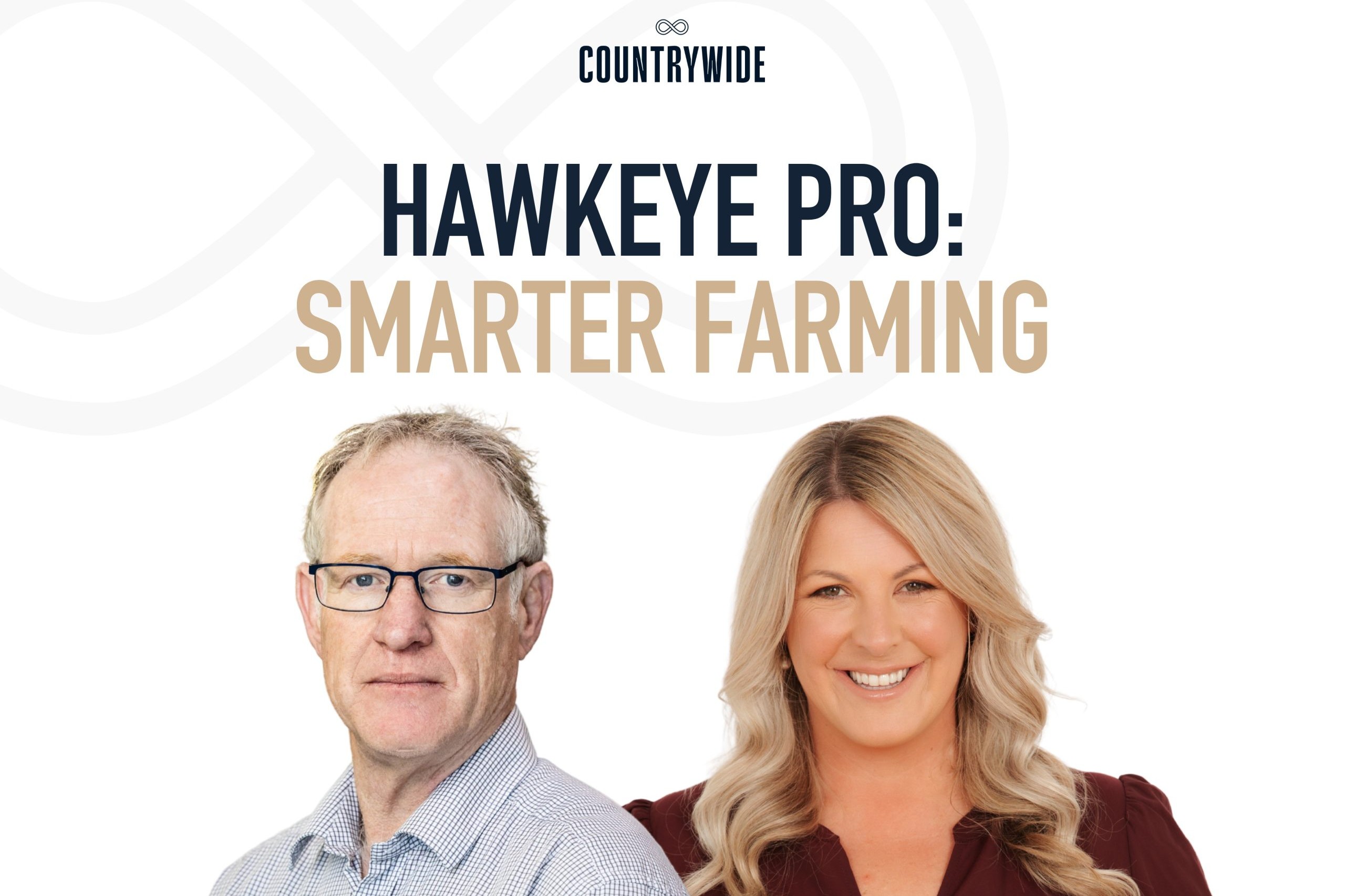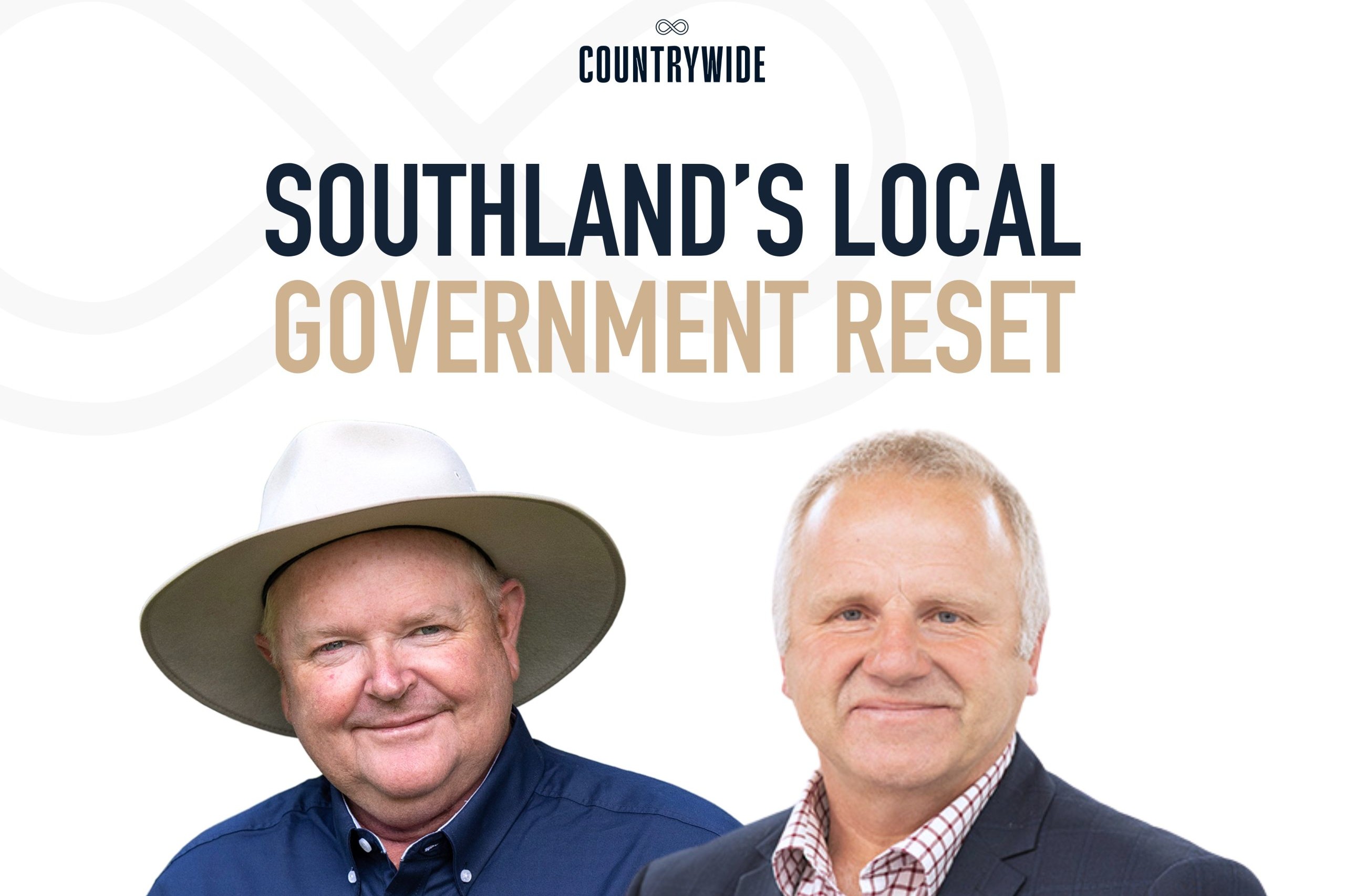Episode 65 – Autumn farmer round-up
In this episode Sarah Perriam-Lampp speaks with the Country-Wide Autumn 2025 homeblock columnists on how they’re adapting to different changes in their corner of New Zealand and Australia.
Kate McBride, farming in remote western New South Wales, reflects on isolation for women in agriculture, and the fallout of live export reforms on Aussie farmers.
King Country’s Dani Darke is tackling dry conditions on farm while exploring agritech and global insights through her Nuffield Scholarship abroad.
Mark Guscott shares his learnings about ‘regenerative’ branded product expansion in the US as Aitken’s Ranch launches their Wairarapa raised lamb under this certified label.
In South Otago, Nigel Woodhead is reducing their reliance on sheep and beef by investing in forestry and new business opportunities, focusing on long-term resilience and sustainability.
Guests:
- Kate McBride, Western NSW, Australia
- Dani Darke, King Country
- Mark Guscott, Wairarapa
- Nigel Woodhead, South Otago
Host:
- Sarah Perriam-Lampp, CEO and Editor-in-Chief, Country-Wide
Kate McBride, a fifth-generation farmer and Country-Wide Homeblock writer, lives and works on her partner’s remote sheep station in western New South Wales. Kate discusses the unique challenges of farming in arid, isolated conditions, the broader political implications of the “Save the Sheep” campaign and the future of live export ban under the Australian’ Labour government.
She also highlights the changing role of women in agriculture, balancing farm responsibilities with external work, and the impact of rural isolation on mental health. Kate reflects on the importance of online support networks and setting boundaries, sharing her approach to managing life’s demands through an analogy of balancing oranges in baskets.
She advocates for greater recognition of the struggles rural women face, encouraging open dialogue and emphasising the value of connecting with others for support.
Dani Darke, farming in the King Country, is navigating an incredibly challenging dry season. Despite facing these difficulties, Dani has made the most of the season’s strong prices, setting up a system to sell most of her two-year-old bulls before the New Year. However, ongoing drought conditions and a large cattle herd have pushed her to explore new approaches, including feeding calves with palm kernels in small feedlots.
In addition to her farming efforts, Dani is pursuing a Nuffield Scholarship, focusing on agritech and its potential to enhance productivity in hill country farming. Her work aims to secure a future for rural communities, emphasising the need for profitable farms to ensure the sustainability of local schools, clubs, and businesses.
Dani also reflects on her research into the opportunities of agritech, from solar power and water monitoring to the integration of AI tools, as she begins to widen her global perspectives she’s gaining through her Nuffield journey currently.
Mark Guscott, a Wairarapa-based farmer who has embraced regenerative agriculture, notes a significant shift in consumer awareness and demand over the last year. With increasing premiums for regenerative products, Mark believes that many New Zealand farmers are already practising regenerative methods but need to market these practices effectively to capture higher prices.
His farm uses a flexible, output-based certification system that focuses on the results of regenerative practices such as soil health, biodiversity, and carbon sequestration. Mark believes that while challenges remain—particularly with arable farming—the benefits of regenerative methods are clear, with improvements in soil and overall farm health.
In the U.S., Mark recognises the potential for New Zealand lamb but stresses the importance of better marketing and presentation. He also highlights the struggles within the wool industry, drawing a parallel to Kodak, and is sceptical about wool’s future in its current form. Mark encourages farmers to explore premium markets, positioning themselves for long-term success.
Nigel Woodhead, Country-Wide Homeblock writer and a sheep, beef, and forestry farmer from Milton, Otago, is navigating a challenging farming season. After a dry start to the year, he’s now seeing much-needed rain and grass growth as he prepares for another season. Despite unpredictable weather patterns, Nigel remains focused on long-term farming strategies, such as breeding and economic success.
Nigel reflects on the volatility of the farming market, noting the boom-and-bust cycles, particularly in lamb prices. He believes farmers struggle with the inherent risks and lack of control over market forces, advocating for more stability in pricing to help businesses plan better. On Silver Fern Farms, he acknowledges the challenges the company faces in a shrinking production market and the difficulty of maintaining competitiveness.
To mitigate exposure to the sheep and beef commodity cycle, Nigel and his wife Leanne have invested in forestry, reducing stock levels and planting around 20% of their farm in trees. This diversification, alongside exploring business opportunities, aims to provide greater financial stability for the future.
Read Kate McBride’s recent homeblock here.
Read Dani Darke’s recent homeblock here.
Read Mark Guscott’s recent homeblock here.
Read Nigel Woodhead’s recent homeblock here.




